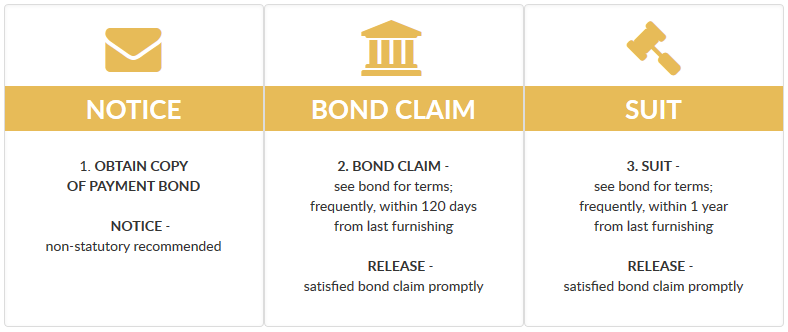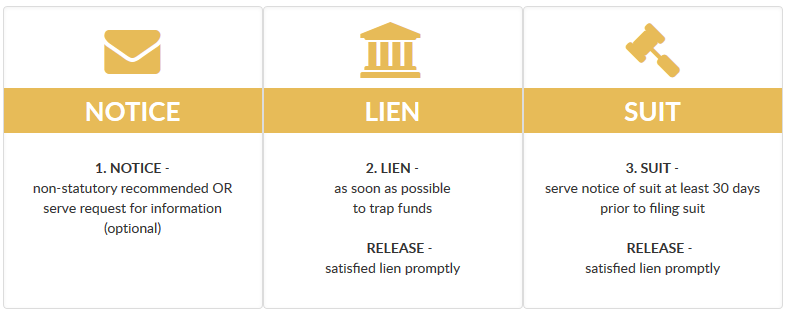Burn ‘Em, Cry a River & Build a Bridge to Get Over It, Sing Songs About Bridges Falling – Just Don’t Lien ‘Em!
You can burn bridges, you can cry a river and build a bridge to get over it, you can even sing songs about bridges falling. But, as one misinformed subcontractor discovered, you can’t place a construction lien on a bridge when that bridge is owned by a public agency.
In Certification Coating Specialists Inc. v. Halifax-Dartmouth Bridge Commission, 2016 NSSC 250, the bankrupt subcontractor, Certification Coating Specialists (“CSS”), had its construction lien invalidated because the bridge is public land and per the Builders’ Lien Act, liens on public property are a no-go.
Backstory: The Big Lift
The MacDonald Bridge is a suspension toll bridge spanning the Halifax Harbour in Nova Scotia, and is currently undergoing significant repair known as “The Big Lift.”
According to the Halifax Harbour Bridges website, “The Big Lift” includes “replacing the road deck, floor beams, stiffening trusses and suspender ropes on the suspended spans of the Macdonald Bridge.”
The owner/operator of the MacDonald Bridge, Halifax-Dartmouth Bridge Commission (“Commission”), hired American Bridge as prime contractor. American Bridge hired Cherubini Metal Works Limited (“Cherubini”) to furnish road deck panels and Cherubini, in turn, hired CSS to paint the panels.
With only a third of the panels painted, CSS filed for bankruptcy protection, and the bankruptcy trustee, Bowra Group Inc. (“Bowra”) filed the lien on several parcels owned by Commission.
Conflict: None Shall Pass
Cherubini contested the construction lien based on the argument that MacDonald Bridge is public property.
“The applicant Cherubini says the MacDonald bridge is a public street or highway and as a result the Builders’ Lien Act has no application. They rely on s. 3(1) of the Act which provides: Nothing in this Act extends to any public street or highway or to any work or improvement done or caused to be done thereon.” Source: Certification Coating Specialists Inc. v. Halifax-Dartmouth, 2016 NSSC 250 (CanLII), par. 10, <http://canlii.ca/t/gtvcs#par10>, retrieved on 2016-12-12.
Per the court opinion, both the Commission and Attorney General of Nova Scotia agreed with Cherubini’s complaint. However, Bowra argued the Commission was not a public agency, which would make the bridge private property and liens would be applicable.
See, the Builder’s Lien Act doesn’t actually define “any public street or highway,” although the definition seems obvious. So Bowra argued that “public” simply means anyone can use the bridge, not that the bridge is owned by a public agency.
If you follow our blog, I hope you see the flaw in this argument. The ability to file a mechanic’s lien/construction lien stems from the property ownership, not from who can use the bridge.
Consider the Bridge Crossed
Ultimately the court needed to determine whether the bridge is publicly or privately owned property. First, the court reviewed the use of the bridge, noting that, despite applicable tolls, anyone can use the bridge. Next, the court looked to the formation of the Commission.
In theory, if the Commission is deemed to be a private entity, it could be further argued that the bridge is private. Unfortunately for Bowra, the Commission has its own Act, which states that it is a public agency.
- “It is a public utility within the meaning of the Public Utilities Act (s. 19).
- All members of the commission are appointed by either the Province of Nova Scotia or Halifax Regional Municipality (s. 3).
- It has the power to expropriate land for purposes of the bridges (s. 12).
- It has the authority to construct, maintain, and operate transportation projects across Halifax harbour which includes a bridge, tunnel, fixed crossing or similar structure (s. 27(1)).”
With that said, the court comfortably granted Cherubini’s request to vacate the CSS/Bowra construction liens.
What Could CSS/Bowra Have Done Differently?
Although there is no payment bond requirement in Nova Scotia, had a bond been issued for the project, CSS/Bowra could have pursued a bond claim.

There is a public improvement lien available for projects owned by the Crown, and based on the formation of the Commission, it’s possible Bowra could have argued the bridge is owned by the Crown and therefor subject to the public improvement lien. But, that may be a bit of a stretch.

Lastly, CSS/Bowra could have pursued their debtor directly, which is likely to happen now that CSS/Bowra’s liens have been invalidated.
Securing your right to be paid can be a tricky business and I strongly recommend you seek a legal opinion!


